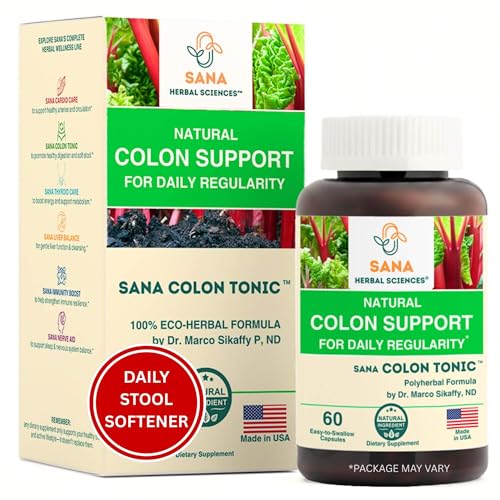As new parents, we all strive to provide the best for our precious babies. We meticulously select their clothing, toys, and even their initial meals. However, when it comes to a fundamental aspect like bathroom habits, we may feel unsure of how to help. It is normal for newborns to encounter constipation, and it can be worrying to witness our little ones in discomfort and distress.
But fear not, because we’re here to help. In this article, we’ll explore gentle methods and natural remedies for constipation in infants, so you can find relief for your baby and feel confident in your ability to care for their needs. From diet changes to belly massages, we’ll cover it all.
Key Takeaways:
- Constipation is common in newborns, but there are gentle ways to help them find relief.
- Adjusting their diet and offering stool-softening foods can promote regular bowel movements.
- Juices like prune, pear, or apple can act as natural laxatives and help soften stools.
- Belly massages and warm baths can relax abdominal muscles and stimulate bowel movements.
- Exercise movements like bicycle legs can also aid in relieving constipation.
Diet Changes
One way to help relieve constipation in newborns is by adjusting their diet. If you’re breastfeeding, consider eliminating any foods from your diet that may cause constipation. Additionally, adding in stool-softening options, such as prunes or apricots, can help promote regular bowel movements. If your baby is formula-fed, it’s important to consult with your pediatrician about potential changes to their formula that may help alleviate constipation.
When it comes to diet changes for constipated newborns, there are a few important considerations. For breastfeeding mothers, eliminating certain foods from your diet can have a positive impact on your baby’s digestion. Some foods that may cause constipation in breastfeeding infants include dairy products, cruciferous vegetables (such as broccoli and cauliflower), and foods high in refined sugars.
List of Foods to Avoid for Breastfeeding Mothers:
- Dairy products
- Cruciferous vegetables (broccoli, cauliflower)
- Highly refined sugars
By identifying and eliminating these potential culprits, you can help alleviate constipation in your newborn. However, it’s important to consult with a healthcare professional before making any significant dietary changes, as they can provide personalized guidance based on your baby’s individual needs.
For formula-fed infants, different formulas may have varying effects on digestive function. Some formulas are specifically designed to help prevent or alleviate constipation. If your baby is experiencing constipation and is formula-fed, consult with your pediatrician to discuss potential changes to their formula. They may recommend switching to a different formula that is better suited to your baby’s digestive system.
Another option is to incorporate stool-softening foods into your baby’s diet. Prunes and apricots are natural sources of fiber and can help promote regular bowel movements. You can introduce these fruits to your baby’s diet by pureeing them or offering them as a natural fruit puree. Just be sure to consult with your pediatrician before introducing new foods to ensure they are suitable for your baby’s age and dietary needs.
In addition to adjusting your baby’s diet, it’s important to ensure they are adequately hydrated. Breast milk or formula provide essential hydration for young infants, but older babies who have started solid foods may benefit from additional water consumption. Adequate hydration can help soften stools and promote regular bowel movements.

Foods to Avoid for Breastfeeding Mothers
| Foods to Avoid |
|---|
| Dairy products |
| Cruciferous vegetables (broccoli, cauliflower) |
| Highly refined sugars |

Mommy's Bliss Baby Probiotic Drops Everyday – Gas, Constipation, Colic Symptom Relief – Newborns & Up – Natural, Flavorless, 0.34 Fl Oz
INFANT PROBIOTICS: Mommy's Bliss baby Probiotic Drops Everyday use the world's most researched probiotic strain. Recommended by pediatricians,…
As an affiliate, we earn on qualifying purchases.
As an affiliate, we earn on qualifying purchases.
Juice Intake
Offering prune, pear, or apple juice can be an effective and natural way to ease constipation in babies. These juices contain sorbitol, a sweetener that acts as a natural laxative. Adding 1 to 2 ounces of 100 percent prune, pear, or apple juice to your baby’s diet each day until their constipation symptoms improve can help soften their stools and promote bowel movement. However, it’s important not to offer water to babies, as it can interfere with their ability to absorb nutrients from breast milk or formula.
To ensure optimal results, choose high-quality juices made from organic fruits without any added sugars or preservatives. Always consult your pediatrician before introducing any new foods or beverages to your baby’s diet.
Benefits of Prune Juice for Constipation in Infants
Prune juice, in particular, has long been known for its natural laxative properties. Prunes are dried plums that are rich in fiber, sorbitol, and natural sugars. The fiber content helps add bulk to the stool, while sorbitol helps stimulate the digestive system and promote regular bowel movements. Prune juice is often recommended as a safe and gentle remedy for constipation in infants.
“Prune juice is a gentle and effective option for relieving constipation in infants. The natural laxative properties of prune juice can help soften stool and ease bowel movements.” – Dr. Emily Johnson, Pediatrician
| Juice | Amount | Benefit |
|---|---|---|
| Prune Juice | 1-2 ounces | Rich in fiber and sorbitol, acts as a natural laxative |
| Pear Juice | 1-2 ounces | Naturally contains sorbitol and helps soften stool |
| Apple Juice | 1-2 ounces | Contains sorbitol and promotes regular bowel movements |

When offering juice to your baby, it’s essential to dilute it with an equal amount of water and only introduce it after consulting with your pediatrician. It’s important to note that excessive juice consumption can lead to an imbalance in a baby’s electrolyte levels and contribute to other health issues.
Remember, juice intake should complement a well-balanced diet, and it should not replace breast milk or formula, which are crucial sources of nutrition for your baby.

Motherlove Birth & Baby Oil (2 oz) Gentle Lavender-Infused Oil for Perineal, Labor & Baby Massage—Non-GMO, Organic Herbs
Labor & Perineal Massage Oil: Birth & Baby Oil is a soothing perineal and labor massage oil.
As an affiliate, we earn on qualifying purchases.
As an affiliate, we earn on qualifying purchases.
Belly Massage
Since peristalsis, the muscular contractions that move stool through the intestines, is not fully developed in babies, they may strain or grunt to move stool down their tract. A gentle belly massage can help stimulate bowel movements and relieve constipation.
To perform a belly massage, lay your baby down on their back and use your fingertips to massage their belly in a clockwise, circular motion just below their belly button. This can help promote peristalsis and aid in moving stool through their intestines.
Additionally, gently pressing their legs against their chest in a bicycle motion can also help stimulate bowel movements.

Tips for Belly Massage:
- Choose a quiet, calm environment.
- Gently warm your hands before starting the massage.
- Use a baby massage oil or lotion to reduce friction on the skin.
- Apply light pressure and never press too hard on your baby’s abdomen.
- Observe your baby’s cues and stop the massage if they become uncomfortable or distressed.

Natural Stool Softener for Constipation Relief – Safe for Daily Use & Postpartum | Gentle Herbal Formula for Adults & Seniors | 60 Capsules | Sana Herbal
Overnight Colon Tonic: Works while you sleep to relieve constipation, stimulate digestion, and leave you feeling refreshed by…
As an affiliate, we earn on qualifying purchases.
As an affiliate, we earn on qualifying purchases.
Warm Bath
Giving your baby a warm bath can be a soothing way to provide relief from constipation. The warm water helps to relax the abdominal muscles, relieving discomfort and tension in their belly. In addition, the warmth may stimulate bowel movements, aiding in the natural process of digestion.
During bath time, fill a tub with comfortably warm water, ensuring it is not too hot or cold for your baby. Gently place your baby in the water, supporting their head and neck. Allow them to sit in the warm bath for a few minutes, providing a relaxing and calming experience.
While your baby is in the bath, you can further assist in relieving constipation by gently massaging their abdomen. Using your fingertips, apply light pressure in circular motions, starting from just below the belly button and moving outwards. This gentle massage can help stimulate the digestive system and promote bowel movement.


SEREED Baby Balance Bike for 1-2 Year Olds – 4 Wheels, First Bike for Toddlers, Birthday Gift (Green)
GROW IN FUN: Recommended ages for 12-24 months. The infant balance bike is the best birthday gift for…
As an affiliate, we earn on qualifying purchases.
As an affiliate, we earn on qualifying purchases.
Exercise Movements
Exercise movements can be a beneficial way to stimulate the bowels of a constipated newborn. While your baby may not be walking or crawling yet, there are exercises you can do to help relieve constipation. One effective exercise is called “bicycle legs.”
To perform the bicycle legs exercise, lay your baby on their back on a comfortable surface. Gently hold their legs and move them in a motion that mimics riding a bicycle. This motion helps stimulate the bowels and can promote regular bowel movements.

Engaging in exercise movements like bicycle legs can help relieve constipation in newborns. It’s a simple and gentle way to promote bowel movements. Remember to be cautious and gentle while performing these exercises to ensure your baby’s comfort and safety.
Hydration
Adequate hydration is essential for maintaining regular bowel movements in infants. While breast milk or formula usually provide sufficient hydration for young infants, babies over 6 months of age who have started eating solid foods may benefit from additional water intake between feeds. This can help soften stools and increase the frequency of bowel movements.
If you’re uncertain about the appropriate amount of water for your baby, consult with your pediatrician for guidance. They can provide personalized recommendations based on your baby’s age, weight, and overall health.
Benefits of Hydration for Constipation in Infants
Ensuring proper hydration for your baby can have several benefits in relieving constipation:
- Softens stools: Drinking enough water helps keep the digestive system functioning smoothly, preventing the stools from becoming dry and hard, which can contribute to constipation.
- Promotes bowel movements: Hydration helps maintain healthy bowel movements by facilitating the movement of waste through the intestines. This can help prevent constipation and ensure regular elimination.
- Flushes out toxins: Sufficient water intake helps flush out toxins from the body, including the digestive system. This can support optimal gut health and prevent constipation.
When introducing water to your baby’s diet, it’s important to do so gradually and offer it in a suitable manner. Begin by offering small sips of water between feeds and gradually increase the amount as your baby adjusts. Avoid giving water in large quantities, as it may interfere with their intake of breast milk or formula, which are the primary sources of nutrition for infants.
Note: While hydration is important for relieving constipation, it’s crucial to consult with your pediatrician before making any significant changes to your baby’s diet or introducing additional liquids.
Signs of Adequate Hydration in Infants
| Signs of Adequate Hydration | Signs of Dehydration |
|---|---|
| Moist mouth and tongue | Dry mouth and tongue |
| Regular wet diapers (at least 6-8 per day) | Decreased number of wet diapers |
| Alert and active behavior | Excessive sleepiness or lethargy |
| Clear or pale yellow urine | Dark-colored urine |
Monitoring your baby’s hydration is important to ensure they are getting enough fluids. If you notice any signs of dehydration, such as decreased urine output or excessive sleepiness, contact your pediatrician immediately.
Home Remedies for Formula-Fed Babies
In addition to the previously mentioned dietary changes and juice intake, there are other home remedies that can help relieve constipation in formula-fed babies. One such remedy is considering a different formula for your baby. It’s important to note that some formulas may be more prone to causing constipation than others. By discussing this with your pediatrician, you can determine if a change in formula is necessary and which alternative formula may be better suited for your baby’s digestive system.

When it comes to formula-fed babies, finding the right formula can make a significant difference in their bowel movements. Consulting with your pediatrician ensures that you’re making informed decisions for the health and well-being of your baby.
Massaging Techniques
Massage techniques can be a gentle and effective way to relieve constipation in babies. By using circular motions and applying gentle pressure, you can help stimulate bowel movements and ease discomfort. Here are some massage tips for constipated newborns:
Belly Massage
Performing a belly massage can help promote peristalsis, the muscle contractions that move stool through the intestines. Lay your baby down on their back and use your fingertips to massage their belly in a clockwise, circular motion just below their belly button. This can help stimulate the bowels and aid in moving stool through their intestines.
Leg Exercises
Engaging your baby in leg exercises can also help relieve constipation. Lay your baby on their back and gently move their legs in a motion mimicking riding a bicycle. This can help stimulate their bowels and promote regular bowel movements.
Back Massage
In addition to belly massages, gently massaging your baby’s back can provide relief from constipation. Use your fingertips to apply gentle pressure and massage their back in circular motions. This can help relax their muscles and stimulate bowel movements.
Remember, it’s important to be gentle and responsive to your baby’s cues during the massage. If your baby shows any signs of discomfort or distress, stop the massage and try again later. Massage can be a soothing and bonding experience for both you and your baby, so enjoy this special time together.

When to Seek Medical Advice
While home remedies can often relieve constipation in infants, it’s important to know when to seek medical advice. Consult your pediatrician if your baby’s constipation persists despite trying gentle methods, or if you notice any of the following symptoms:
- Extreme discomfort or pain during bowel movements
- No bowel movement for more than five days
- Severe changes in stool consistency
- Blood in stool
- Reduced appetite or feeding difficulties
- Weight loss or failure to gain weight
- Swollen or distended abdomen
If you observe any of these signs, it’s essential to reach out to your pediatrician. They are trained to assess your baby’s health and provide proper guidance and treatments if necessary.
“Don’t hesitate to consult your pediatrician if your baby’s constipation persists or if you notice any concerning symptoms. Prompt medical attention can help address any underlying issues and ensure your baby’s well-being.”
Symptoms That Require Medical Attention
| Symptom | Description |
|---|---|
| Extreme discomfort or pain during bowel movements | Indication of underlying issues or blockages |
| No bowel movement for more than five days | Possible sign of prolonged constipation |
| Severe changes in stool consistency | Abnormalities in stool appearance or texture |
| Blood in stool | Potential sign of an intestinal problem or injury |
| Reduced appetite or feeding difficulties | Associated with digestive issues or discomfort |
| Weight loss or failure to gain weight | Can indicate inadequate nutrient absorption |
| Swollen or distended abdomen | Possible intestinal blockage or excess gas |

Medical Treatment Options
In some cases, medical treatment may be necessary to address constipation in infants. Your child’s healthcare provider may prescribe medications to help alleviate constipation. They may also recommend checking your baby’s temperature using a digital, rectal thermometer. The introduction of the thermometer into the rectum can stimulate bowel movements. It’s important to follow your healthcare provider’s advice and not administer any medications or treatments without their guidance.
When it comes to medical treatments for constipation in infants, there are a few options that healthcare providers may consider:
- Medication: Your healthcare provider may prescribe a medication to help soften stools and promote bowel movements in your baby. These medications may include stool softeners, laxatives, or suppositories. It’s crucial to follow the dosing instructions provided by your healthcare provider and communicate any concerns or changes in your baby’s condition.
- Rectal Thermometer: Your healthcare provider may recommend using a digital, rectal thermometer to help stimulate bowel movements. The gentle insertion of the thermometer into the rectum can provide stimulation and encourage the passage of stools. It’s essential to use a rectal thermometer specifically designed for babies and follow the instructions provided by your healthcare provider.
Remember, before administering any medications or using a rectal thermometer, consult with your healthcare provider. They will be able to assess your baby’s condition and provide appropriate advice and guidance on the best course of action.
While medical treatment may be necessary in some cases, it’s essential to consider and implement gentle methods and natural remedies as the first line of defense against constipation in infants. These approaches, along with close monitoring and regular communication with your healthcare provider, can help provide relief and promote healthy bowel movements in your baby.

| Treatment Option | Description |
|---|---|
| Medication | Prescribed by healthcare provider; includes stool softeners, laxatives, or suppositories to promote bowel movements. |
| Rectal Thermometer | Recommended by healthcare provider; gentle insertion of a digital, rectal thermometer to stimulate bowel movements. |
Conclusion
In summary, there are gentle and natural ways to relieve constipation in newborns. By adjusting the baby’s diet, offering fruit juice, performing belly massages, and engaging in exercise movements, you can help stimulate bowel movements and alleviate constipation. Remember to closely monitor your baby’s symptoms and consult with your pediatrician if constipation persists or if you notice any concerning signs. Each baby is unique, so finding the right approach may require some trial and error. With patience and care, constipation in newborns can be effectively managed.
FAQ
What are some gentle ways to help a newborn poop naturally?
There are several methods you can try to relieve constipation in newborns. These include adjusting their diet, offering fruit juice, performing belly massages, engaging in exercise movements, and ensuring they are adequately hydrated.
How can diet changes help with constipation in newborns?
If you are breastfeeding, eliminating foods from your diet that may cause constipation can help. For formula-fed babies, consulting with your pediatrician about potential changes to their formula may be beneficial in alleviating constipation.
Can juice intake be helpful in relieving constipation in newborns?
Yes, offering prune, pear, or apple juice can be an effective and natural way to ease constipation in babies. These juices contain sorbitol, a sweetener that acts as a natural laxative.
How can belly massages help stimulate bowel movements in newborns?
A gentle belly massage can help promote peristalsis and aid in moving stool through the intestines. To perform a belly massage, lay your baby down on their back and use your fingertips to massage their belly in a clockwise, circular motion just below their belly button.
Can a warm bath help relieve constipation in newborns?
Yes, giving your baby a warm bath can help relax their abdominal muscles and ease discomfort related to constipation. The warm water can help relieve tension in their belly and possibly stimulate bowel movements.
How can exercise movements help stimulate the bowels of a constipated newborn?
While your baby may not be walking or crawling yet, you can help them exercise their legs to relieve constipation. Lay your baby on their back and gently move their legs in a motion mimicking riding a bicycle. This can help stimulate the bowels and promote regular bowel movements.
Why is hydration important for promoting regular bowel movements in infants?
Adequate hydration can help soften the stools and increase the frequency of bowel movements. While young infants typically receive their hydration from breast milk or formula and do not need supplemental liquids, babies over 6 months of age who are eating solid foods may benefit from drinking extra water between feeds. It is important to consult with your pediatrician about the appropriate amount of water for your baby.
Are there any specific home remedies for formula-fed babies with constipation?
Along with adjusting the baby’s diet and offering juice, trying a different formula may be beneficial. Discussing this with your pediatrician can help determine if a change in formula is necessary and which alternative formula may be better suited for your baby’s digestive system.
How can massaging techniques help relieve constipation in babies?
Massaging techniques, such as circular motions on the belly and gentle pressure on the legs, can help stimulate bowel movements and relieve constipation in infants. These techniques can promote peristalsis and aid in moving stool through the intestines.
When should I seek medical advice for my baby’s constipation?
It is important to consult your pediatrician if your baby’s constipation persists despite trying gentle methods, or if you notice prolonged constipation, changes in stool consistency, or any concerning symptoms.
What medical treatment options are available for constipation in infants?
In some cases, medical treatment may be necessary to address constipation in infants. Your child’s healthcare provider may prescribe medications to help alleviate constipation. They may also recommend checking your baby’s temperature using a digital, rectal thermometer, as the introduction of the thermometer into the rectum can stimulate bowel movements.
Are there any gentle and natural ways to relieve constipation in newborns?
Yes, by adjusting the baby’s diet, offering fruit juice, performing belly massages, engaging in exercise movements, and ensuring adequate hydration, you can help relieve constipation in newborns in a gentle and natural way. Every baby is different, so finding the right approach may take some trial and error.









